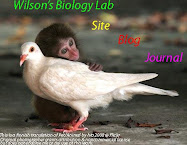 ne of a song, but keep the same lyrics, the inactive areas of the brain would be processing the lyrics (and vice versa). Areas of the brain that were inactive when both the tune and the lyrics remained the same were believed to be processing both.
ne of a song, but keep the same lyrics, the inactive areas of the brain would be processing the lyrics (and vice versa). Areas of the brain that were inactive when both the tune and the lyrics remained the same were believed to be processing both.The group conducting the experiment wrote 6 different sets of songs to determine if 12 volunteers were having different brain functions. Some songs had different melodies, but had the same lyrics. Another set had different lyrics, but the same melodies. In a third set, all the songs had different lyrics and melodies. From the MRI scans, the team was able to see that one part of the brain, the superior temporal sulcus, was mainly responsible for responding to the songs. In the middle of the STS, the lyrics and melodies were being processed as a single, uninterrupted signal. Though in the front of the STS, only the lyrics seemed to be processed, while the melody was nowhere to be found. The team did not find the portion of the brain for processing the melodies, possibly because there may be no individual process for them in an average brain (although experienced musicians may have this process).
After the experiment was completed, Sammler concluded that the brain first processes the music and lyrics together. Then, Sammler explained, a more complex process is used to decode the significance of the lyrics, and the music is treated separately. "The more they are processed, the more they are separated" she says. She argues that the level of inactivation in the superior temporal sulcus was not what would be expected if the music and lyrics were, in fact, being processed at the same time.
Although Sammler has come to her conclusion, there are still varied opinions among the researchers and other scientists. Martin Braun of Neuroscience of Music is not convinced that the brain is ever processing both the music and lyrics at once. "Activation of a particular brain area by different stimuli doesn't imply that these different stimuli are integrated. The stimuli might just have a similar effect on the area." he argues. If the truth is discovered, it should be a major factor in gaining further knowledge about the brain.
Sources
http://www.newscientist.com/data/images/ns/cms/dn18626/dn18626-1_536.jpg
http://www.newscientist.com/article/dn18626-music-and-lyrics-how-the-brain-splits-songs.html?DCMP=OTC-rss&nsref=life
By Emily Siegel and James Buchsbaum





I understand why some people would want to know how the brain reacts to music, but how would this information ever become useful in a "greater" meaning
ReplyDelete